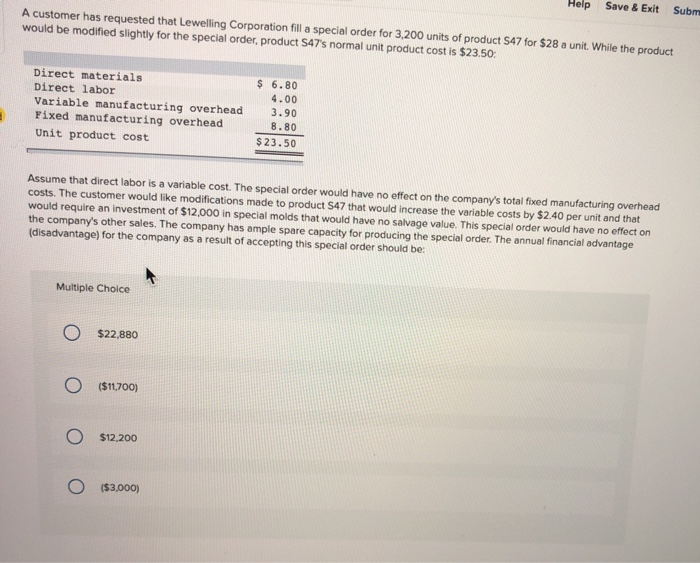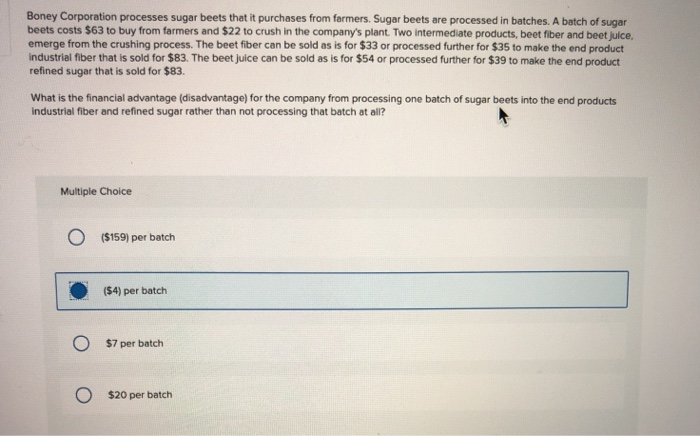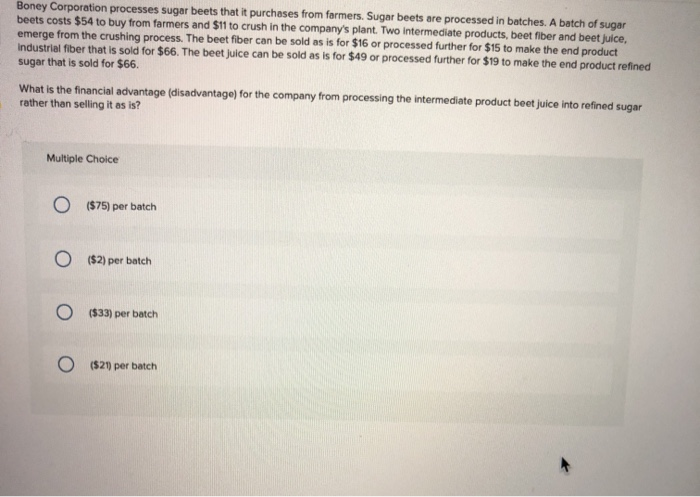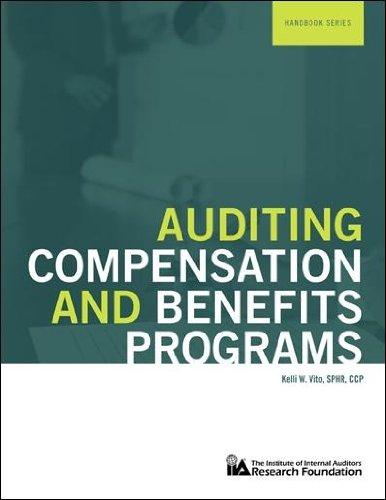2.
3.
thank u for the help.
A customer has requested that Lewelling Corporation fill a special order for 3,200 units of product S47 for $28 a unit. While the product would be modified slightly for the special order, product S47's normal unit product cost is $23.50: Direct materials Direct labor Variable manufacturing overhead Fixed manufacturing overhead Unit product cost $ 6.80 4.00 3.90 8.80 $23.50 Assume that direct labor is a variable cost. The special order would have no effect on the company's total fixed manufacturing overhead costs. The customer would like modifications made to product S47 that would increase the variable costs by $2.40 per unit and that would require an investment of $12,000 in special molds that would have no salvage value. This special order would have no effect on the company's other sales. The company has ample spare capacity for producing the special order. The annual financial advantage (disadvantage) for the company as a result of accepting this special order should be: Multiple Choice $22,880 ($11.700) Oo oo O $12,200 ($3,000) Boney Corporation processes sugar beets that it purchases from farmers. Sugar beets are processed in batches. A batch of sugar beets costs $63 to buy from farmers and $22 to crush in the company's plant. Two intermediate products, beet fiber and beetjuice, emerge from the crushing process. The beet fiber can be sold as is for $33 or processed further for $35 to make the end product Industrial fiber that is sold for $83. The beet juice can be sold as is for $54 or processed further for $39 to make the end product refined sugar that is sold for $83. What is the financial advantage disadvantage) for the company from processing one batch of sugar beets into the end products Industrial fiber and refined sugar rather than not processing that batch at all? Multiple Choice O ($159) per batch (54) per batch 0 $7 per batch O $20 per batch Boney Corporation processes sugar beets that it purchases from farmers. Sugar beets are processed in batches. A batch of sugar beets costs $54 to buy from farmers and $11 to crush in the company's plant. Two intermediate products, beet fiber and beetjuice, emerge from the crushing process. The beet fiber can be sold as is for $16 or processed further for $15 to make the end product Industrial fiber that is sold for $66. The beet juice can be sold as is for $49 or processed further for $19 to make the end product refined sugar that is sold for $66. What is the financial advantage (disadvantage) for the company from processing the intermediate product beet juice into refined sugar rather than selling it as is? Multiple Choice O ($75) per batch O ($2) per batch O ($33) per batch O ($21) per batch









